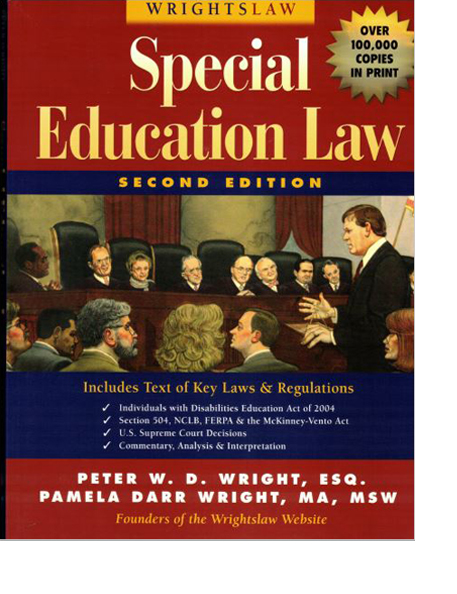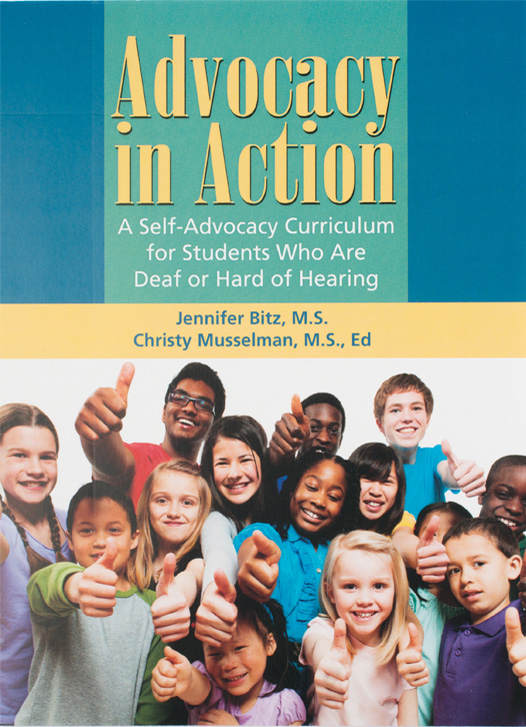Related Products
For Professionals
- Amplification
- Assessment of Student Skills, Challenges, Needs
- Early Childhood: Infants, Toddlers, Preschool
- Hearing Loss – Identification, Impact and Next Steps
- IDEA Law Summary Information
- Language and Speech Development Issues
- Legal Issues in Serving Children with Hearing Loss
- Listening (Auditory Skills) Development
- Planning to Meet Student Needs
- Self-Advocacy Skills for Students with Hearing Loss
- Self-Concept: How the Child with Hearing Loss Sees Himself
- Social Skills
- Speech Perception & Learning
Related Teacher Tools Takeout Items
Issues: Eligibility Determination
![]()
The information below has been derived from sections of the law, Office of Special Education Program comments and discussion provided at
http://idea.ed.gov/explore/home. The guidance provided in that website helps clarify the intent of IDEA and may be useful to professionals and parents alike who are trying to advocate appropriate services and supports for children with hearing loss. Another valuable and brief summary is at
http://www2.ed.gov/about/offices/list/ocr/docs/hq9806.html
NOTE: the information below this does NOT constitute legal advice.
Assessment of Students with Hearing Loss MUST Consider their Full Range of Needs. June 1, 2018 court case: S.P. vs East Whittier City School Dist., Pasadena CA. A hard of hearing student was assessed and made eligible as a student with speech & language disorders; needs due to hearing loss not considered. The court ruled that by not tying special education services to her hearing loss, IDEA was violated. The IEP team must consider the child’s language and communication needs…, academic level, and
full range of needs Assessment of her auditory skills consisted only of review of records and observation. This level of assessment was deemed
insufficientto satisfy the district’s evaluation obligation. School teams must assess more broadly, in areas of development that are most likely to be impacted secondary to hearing loss. Formal and informal data in all areas of suspected disability are necessary.
READ MORE
Eligibility for Specialized Instruction, Services and Supports
Example student cases and excerpts from IDEA and court case information
1. The student is getting average/good grades or appears to have typical development as they enter school. The school team concludes that this is evidence that the student does not require any specialized support services.
“Each State must ensure that FAPE is available to any individual child with a disability who needs special education and related services, even though the child has not failed a course or grade, and is advancing from grade to grade.” (CFR Section 300.101)
As noted in the Analysis of Comments and Changes section discussing subpart B, we have clarified in Sec. 300.101(c) that a child does not have to fail or be retained in a course or grade in order to be considered for special education and related services. However, in order to be a child with a disability under the Act, a child must have one or more of the impairments identified in section 602(3
/a/i) of the Act and need special education and related services because of that impairment. [From 602(3/a/i)
hearing impairments (including deafness)…
(602(3/a/ii) who, by reason thereof, needs special education and related services.]
The group determining the eligibility of a child for special education and related services must make an individual determination as to whether, notwithstanding the child’s progress in a course or grade, he or she needs or continues to need special education and related services.
Section 300.8(a)(2)(i) states that if a child has one of the disabilities listed in Sec. 300.8(a)(1), but only needs a related service, the child is not a child with a disability under the Act. However, Sec. 300.8(a)(2)(ii) provides that, if a State considers a particular service that could be encompassed by the definition of related services also to be special education, then the child would be determined to be a child with a disability under the Act. We believe it is important that States have the flexibility to determine whether, consistent with the definition of the term special education in section 602(29) of the Act and new Sec. 300.39 (proposed Sec. 300.38), such a service should be regarded as special education and to identify a child who needs that service as a child with a disability. States are in the best position to determine whether a service that is included in the definition of related services should also be considered special education in that State.
The information that follows comes from a settled
court case:
Finally, school districts should not rely solely on the adequacy of a student’s grades in determining eligibility for services or the impact on the student when required services are not provided.
If, however, the parent and public agency disagree about whether the child would be provided with FAPE if the child did not receive a particular special education or related service, the parent may use the due process procedures in subpart E of these regulations to obtain a ruling that the service with which the parent disagrees is not appropriate for their child.
2.
The student has received special education support and is now getting very good grades in school. The school team wants to discontinue specialized support services as the student is no longer showing adverse educational effect.
The IEP requirements in Sec. 300.320(a), consistent with section 614(d) of the Act, clarify that children with disabilities must be provided special education and related services and needed supplementary aids and services to enable them to be involved in and make progress in the general curriculum.
Section 300.101(c) provides that a child is eligible to receive special education and related services even though the child is advancing from grade to grade. Further, it is implicit from paragraph (c) of this section that a child should not have to fail a course or be retained in a grade in order to be considered for special education and related services. A public agency must provide a child with a disability special education and related services to enable him or her to progress in the general curriculum, thus making clear that a child is not ineligible to receive special education and related services just because the child is, with the support of those individually designed services, progressing in the general curriculum from grade-to-grade or failing a course or grade. The group determining the eligibility of a child for special education and related services must make an individual determination as to whether, notwithstanding the child’s progress in a course or grade, he or she needs or continues to need special education and related services.
3.
A student with hearing aids/cochlear implants has entered our school district. The group who will evaluate him for eligibility will assess academics and speech/language however the team does not include a specialist in deaf/hard of hearing (teacher or educational audiologist).
The Secretary believes that the unique communication and related needs of many children who are deaf have not been adequately considered in the development of their IEPs. To assist public agencies in carrying out their responsibilities for children who are deaf, the Department provides the following guidance. The Secretary believes it is important that State and local agencies, in developing an IEP for children who are deaf, take into consideration such factors as:
(1) Communication needs and the child’s and family’s preferred mode of communication; (2) Linguistic needs; (3) Severity of hearing loss and potential for using residual hearing; (4)Academic level; and (5) Social, emotional, and cultural needs including opportunities for peer interactions and communication. In addition, the particular needs of an individual child may require the consideration of additional factors. For example, the nature and severity of some children’s needs will require the consideration of curriculum content and method of curriculum delivery in determining how those needs can be met. Including evaluators who are knowledgeable about these specific factors as part of the multidisciplinary team evaluating the student will help ensure that the deaf student’s needs are correctly identified.
Part
300 /
D /
300.304 /
c / 4
(4) The child is assessed in all areas related to the suspected disability, including, if appropriate, health, vision, hearing, social and emotional status, general intelligence, academic performance, communicative status, and motor abilities;
Generally, we would expect that the child’s general education teacher would have data from routine classroom instruction and would work with the other members of the eligibility group to determine what additional data, if any, are needed to determine whether a child has an SLD. A special education teacher who is experienced in working with children with SLD, for example, might have suggestions on ways to structure a particular observation session to obtain any additional information that is needed, and may be able to assist the general education teacher in gathering the data.
[This statement is applicable to teachers of the deaf/hard of hearing as well.]



